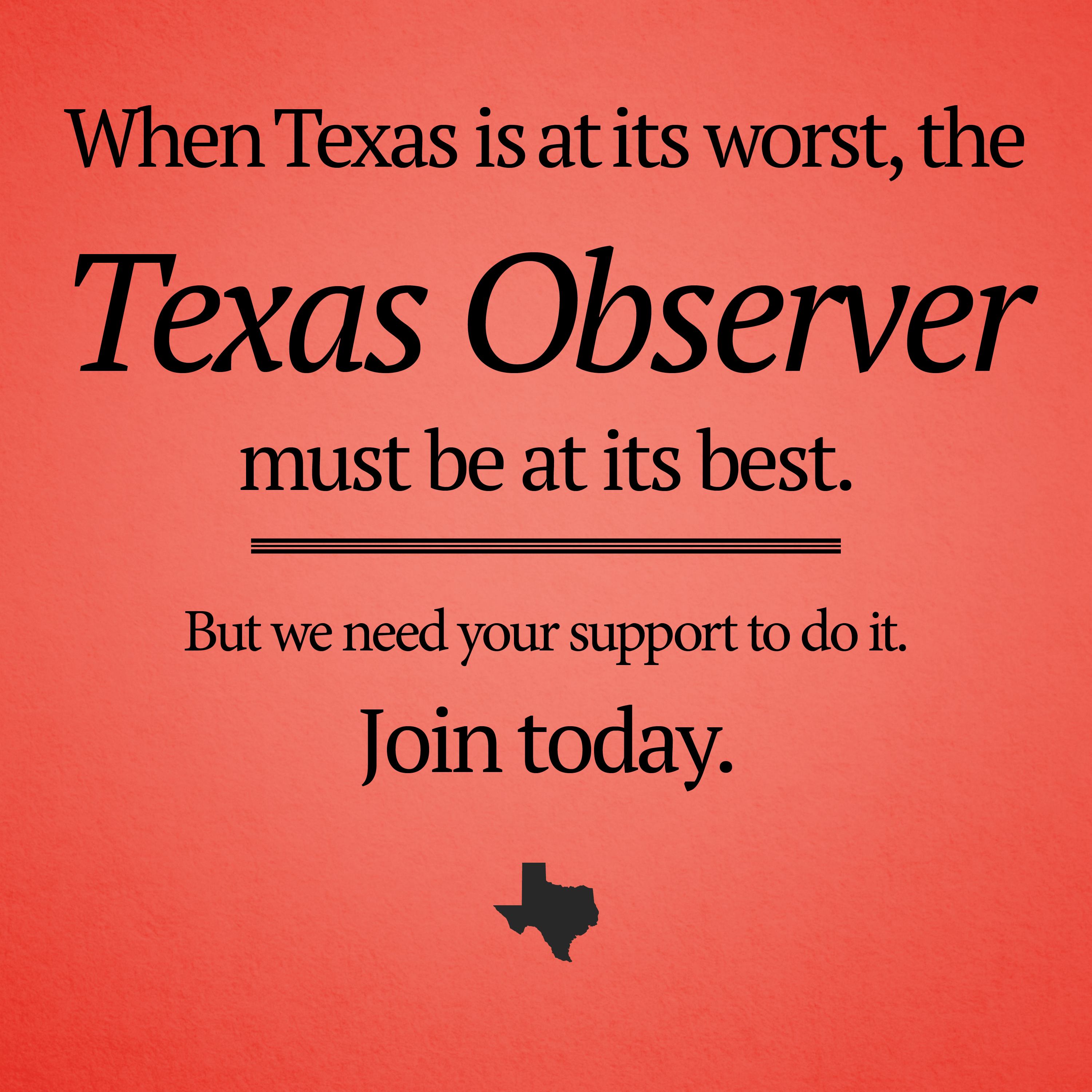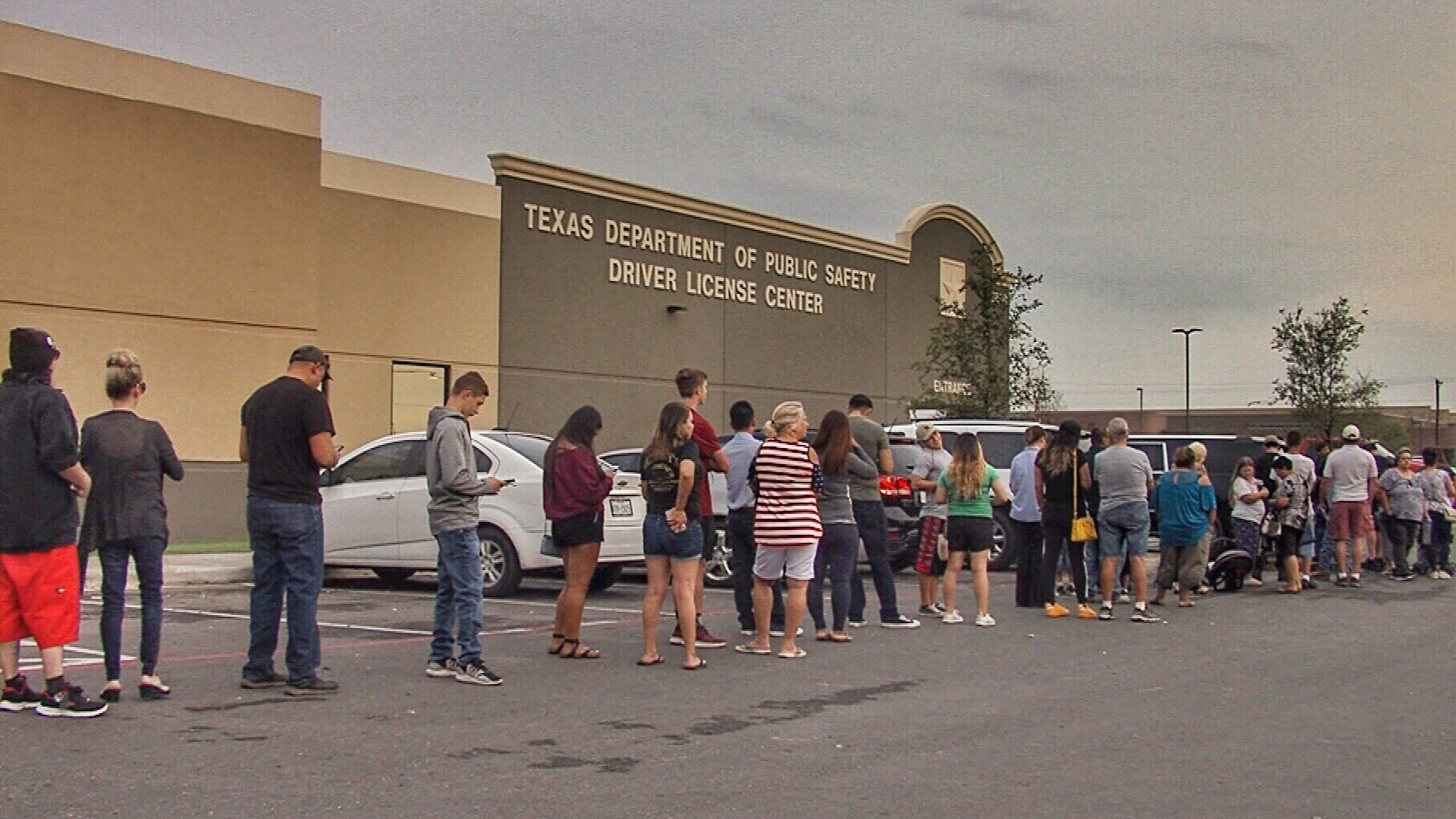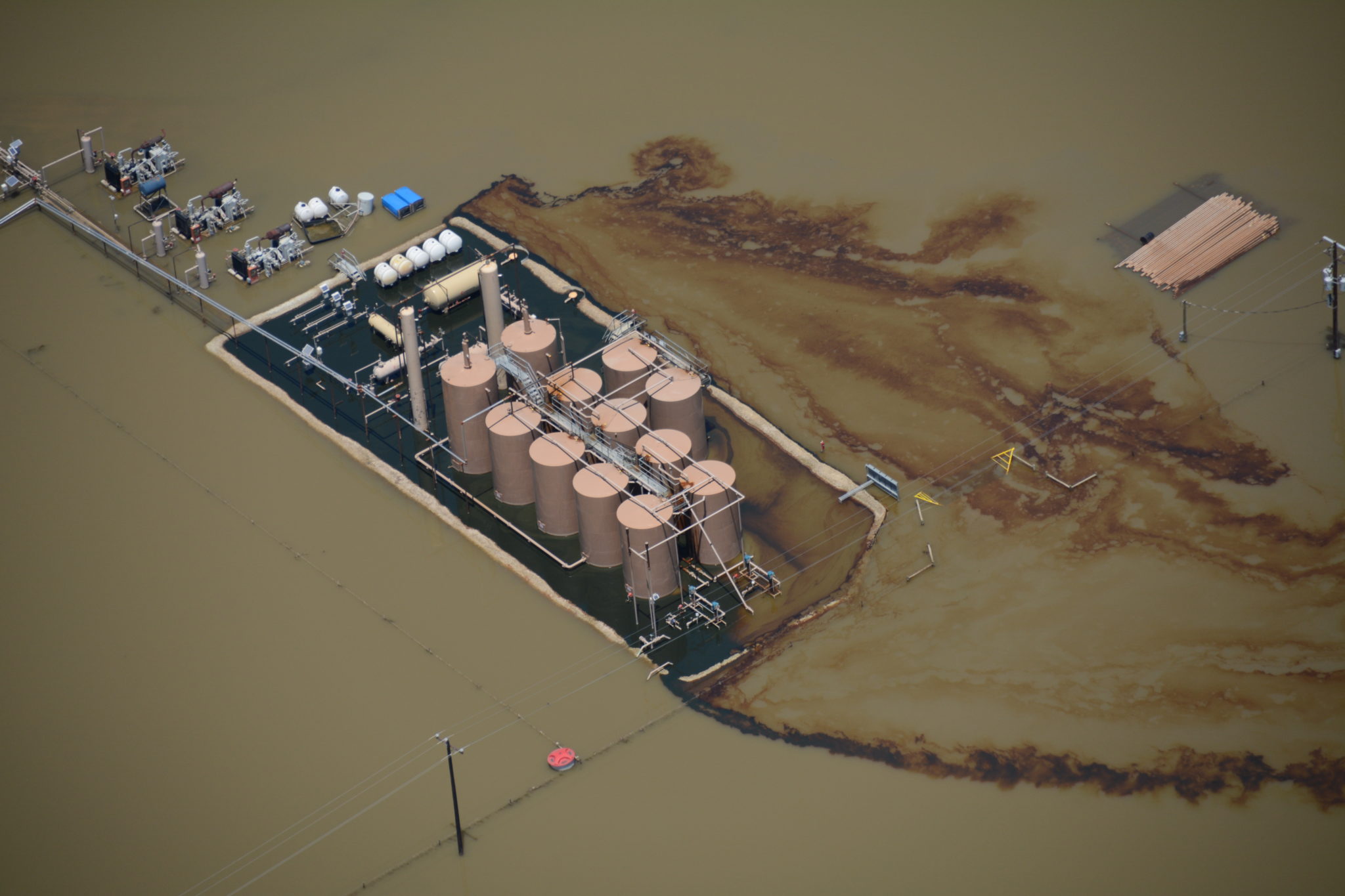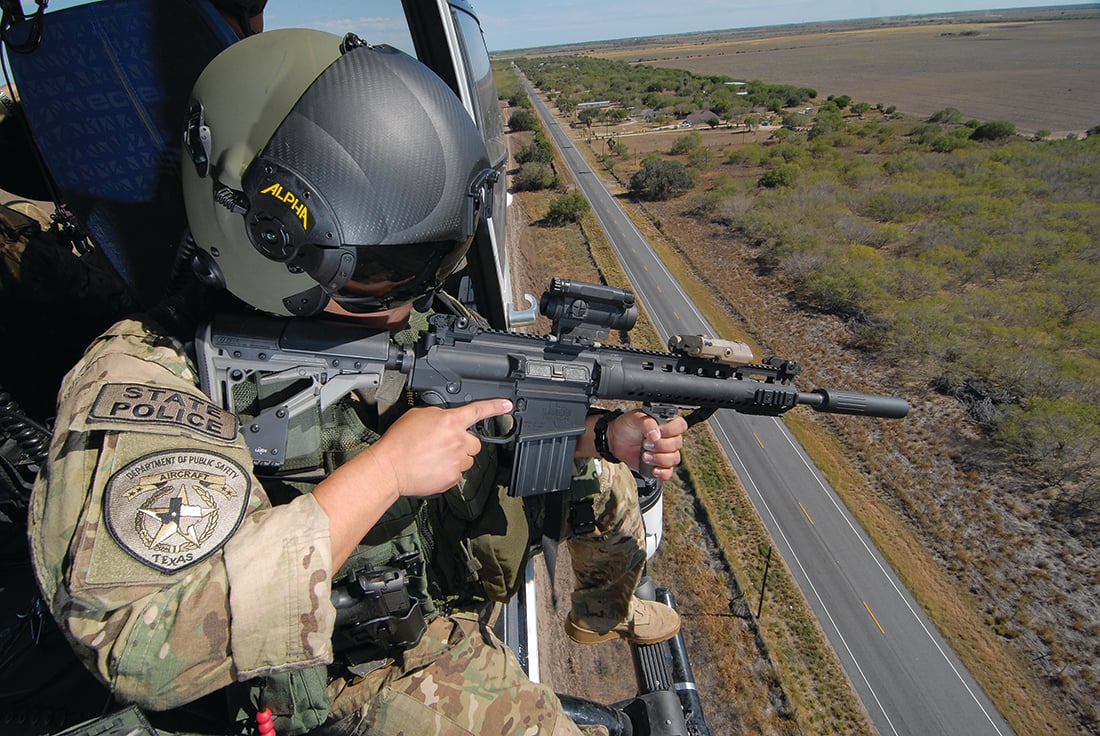
Did Texas Police Violate First Amendment Rights of Pro-Palestine Protesters?
A UT professor and expert on freedom of expression weighs in on the controversial arrests of 57 individuals, including a journalist, at a campus demonstration.
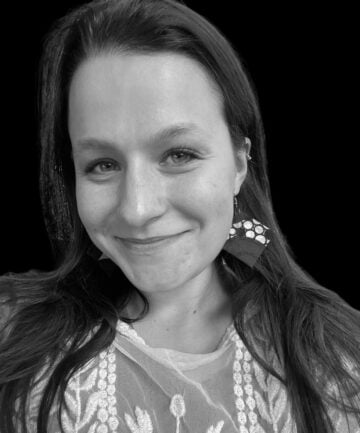
On Wednesday, police arrested 57 people, including one journalist, on charges of criminal trespassing on the University of Texas at Austin’s campus during a protest against Israel’s ongoing attacks on Gaza and the university’s investments in weapons manufacturing.
In a statement to the Observer, a UT-Austin spokesperson said that about half of those arrested were unaffiliated with the university. “Thirteen pro-Palestinian free speech events have taken place at the University largely without incident since October,” wrote Brian Davis, the spokesperson. “In contrast, this one in particular expressed an intent to disrupt the campus and directed participants to break Institutional Rules and occupy the University.”
A Texas Department of Public Safety (DPS) spokesperson emailed the Observer a statement Thursday acknowledging that DPS had arrested a journalist and saying the case had been turned over to DPS’ Criminal Investigations Division. The spokesperson, Press Secretary Sheridan Nolen, also said the journalist was “seen hitting a DPS Trooper in front of him with his camera”—while the journalist has said he was pushed and did not hit an officer.
Governor Greg Abbott’s office did not immediately respond to a Texas Observer request for comment.
Dr. Amy Sanders is a tenured associate professor at UT-Austin, a licensed attorney, and journalist. She has taught courses on media law, journalism ethics, and global protections on speech, press, and protest. In the aftermath of Wednesday’s arrests, Sanders spoke with the Observer about free speech protections and the First Amendment.
TO: UT is a public university, and the protests yesterday were taking place outdoors. Isn’t that a public forum, fully protected for free assembly and free speech under the First Amendment?
So let’s not even talk about the First Amendment first. If you look at UT’s own policy regarding freedom of expression, they open up public outdoor common areas on campus for these kinds of activities. UT actually has a policy that says assemblies of the public are permitted in outdoor campus spaces.
The real issue yesterday is whether or not you believe it was a peaceful protest. Universities, of course, have a right to ensure the physical safety of their students, staff and faculty.
When expressive activities get out of hand and turn violent, or when people begin engaging in speech that is not protected by the First Amendment—true threats, fighting words—the university has the right to step in and stop that kind of protest. I have seen nothing to suggest that is what occurred yesterday.
What kind of speech would constitute a true threat or fighting words?
There’s been a lot of confusion about anti-Semitism. Anti-Semitism is hate speech against Jewish people—and it is fully protected by the First Amendment.
Unless we’re getting into actual targeted threats of physical violence, protesters have a right to engage in antisemitic speech. Again, I haven’t seen evidence that that’s what was occurring yesterday. But even if it was, that speech is protected by the First Amendment.
The First Amendment does not protect any kind of physical action that would harm someone’s safety. You have no First Amendment right to push, shove, kick, hit other people. But, often in the case of peaceful protests, like we saw yesterday, there is of course pushing, and people are moving. Oftentimes, police exercise restraint in allowing some of this movement to happen, understanding that you can be in a crowd and come into contact with someone without intending to hurt them.
I think the presence of armed riot police always increases the tension in these kinds of situations—and I think it’s the wrong move.
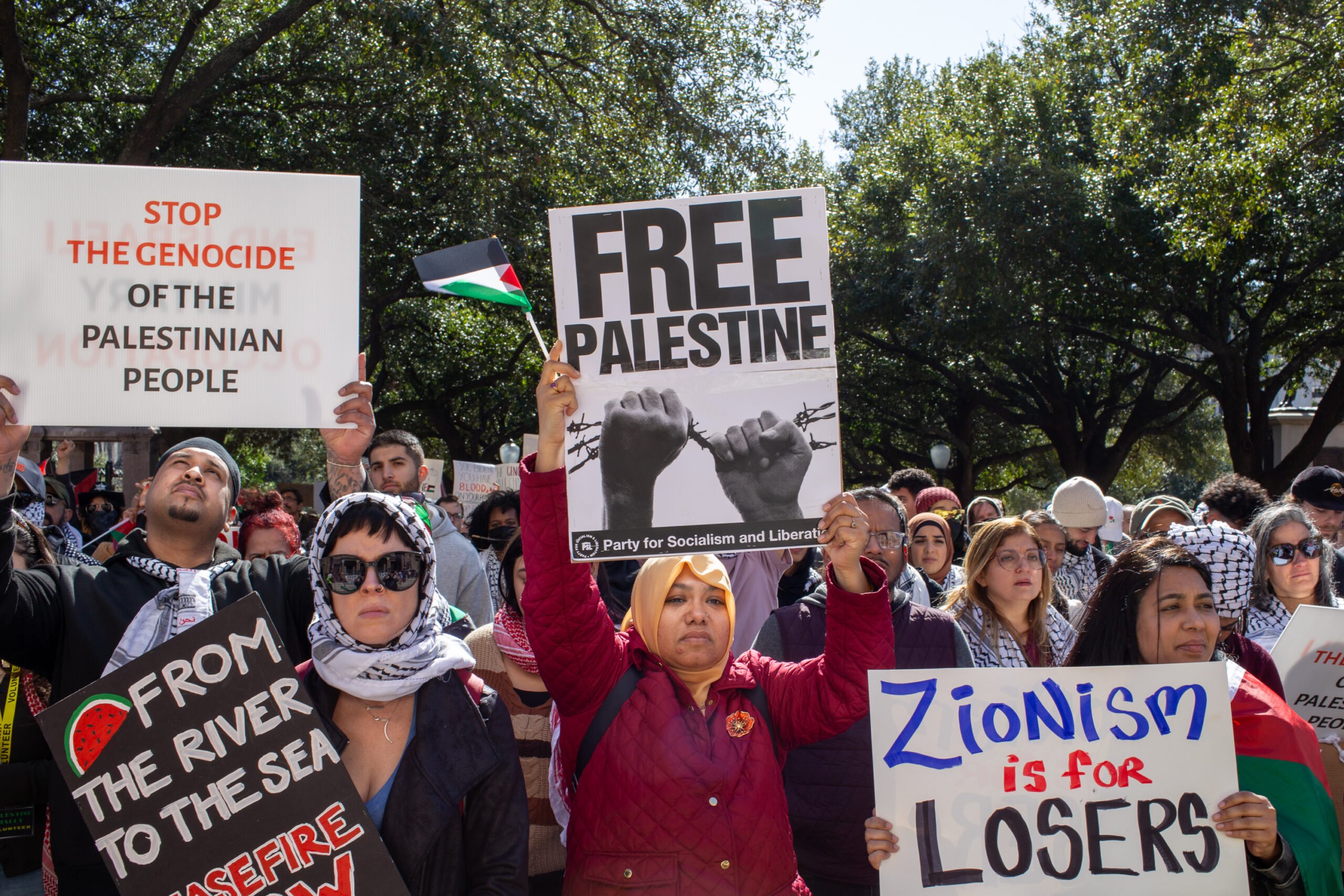
Does the First Amendment differentiate between journalists and other members of the public? There was a reporter arrested yesterday—he’s a photojournalist for Fox7, and he was arrested and charged with criminal trespassing.
That arrest in my opinion is absolutely unlawful. Police obviously have the right to ask journalists to move to keep them safe. But from the video I have seen, he was doing nothing unlawful, other than engaging in the practice of journalism. The First Amendment protects journalists who are in the process of covering a news story on public property.
Did you see any basis for a dispersal order yesterday?
Obviously, I wasn’t everywhere—I haven’t seen everything. But I suspect that that was a tactic to try to calm the situation. I don’t know that it was lawful. I also don’t think it was effective.
(Note: The Observer was present on campus when one of the dispersal orders was read out around 6:15 p.m. Wednesday. The crowd of protestors moved off campus, and then police left en masse—and protestors promptly returned to UT’s South Lawn in the heart of campus where many of the arrests took place, according to videos posted on social media by local journalists. The group continued to peacefully protest, while a couple drones buzzed overhead.)
Can police or elected leaders in Texas declare public forums to be criminal trespass zones?
Generally speaking, when members of the public are engaged in a peaceful protest in a public space—assuming they are not obstructing traffic, or disrupting campus activities—there is very little legal basis for law enforcement to demand they leave.
For the protesters and journalists arrested yesterday, are the charges likely to be dropped?
Having spent time in a prosecuting attorney’s office, I would anticipate that nearly all of these charges will be dropped.
(As of mid-morning Thursday, nearly 50 of the charges had been dropped, according to the Austin Chronicle.)
Then what was the point of sending riot police and arresting people?
The point is absolutely to intimidate the students and other protesters into not exercising their First Amendment right to speak. The whole goal of sending in riot police, of making the statements that the governor of Texas made, is to chill freedom of expression.
It is to make clear that you don’t approve of their views, and that you will attempt to punish them for expressing their views—even if what they’re doing is protected by the First Amendment. It’s an extremely effective tactic.
The fear of getting arrested—the fear of spending a night in jail—without a doubt discourages some people from participating.
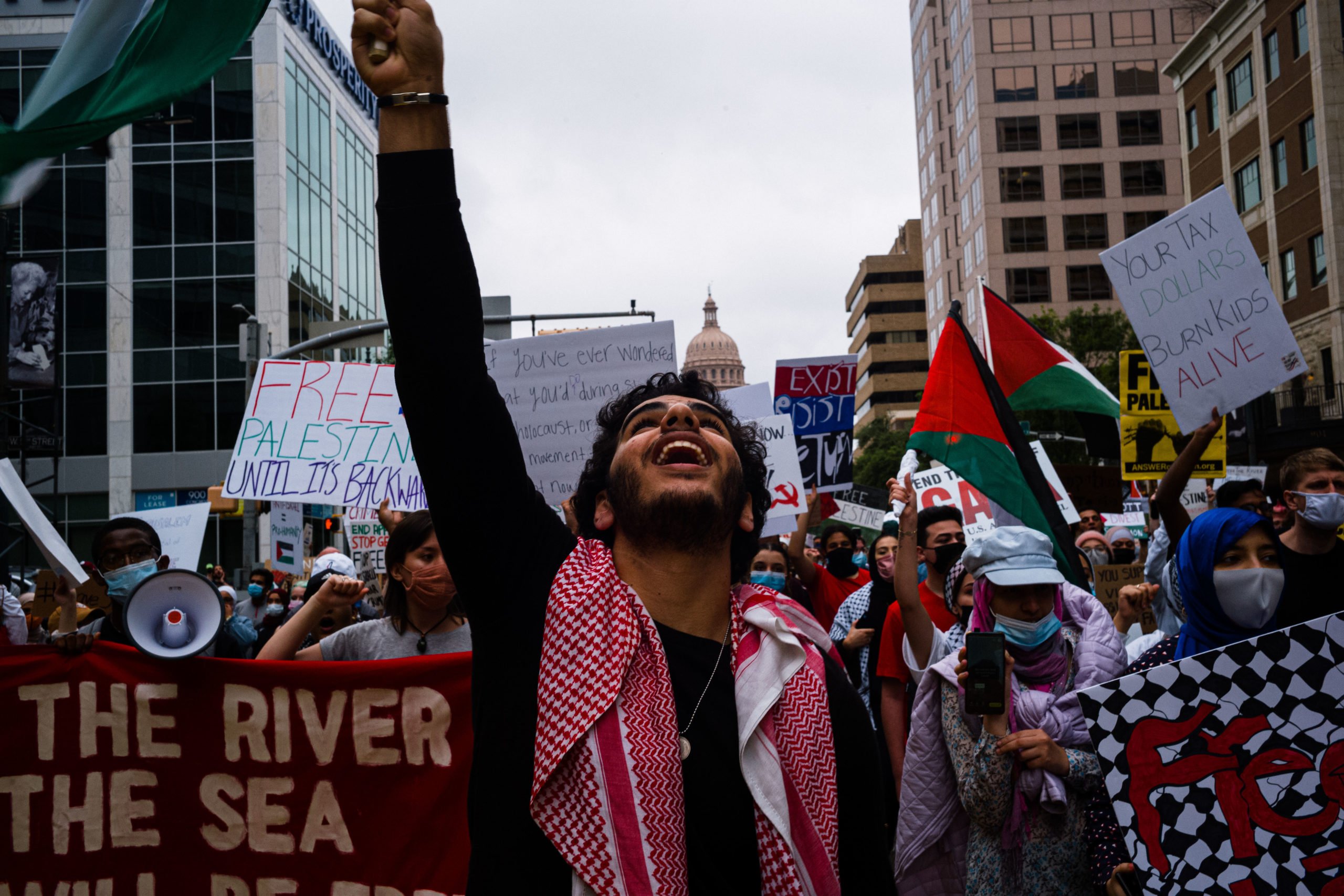
Can police arrest protesters on public property when they’ve not broken any laws? And can police arrest protesters on public property if they believe that protesters plan to break laws?
The idea that we would take all of this action preemptively to try to prevent harm is not something that the First Amendment permits. This standard when we’re talking about incitement speech, for example, which is not protected by the First Amendment, is extremely high.
The phrase that the courts use is “imminent, lawless action”—and that has two components to it: lawless action requires unlawful behavior. Imminent means the the threat is real, and it’s happening now.
I just don’t see, based on the posts from protesters and organizers that I’ve seen, based on what happened yesterday—I just don’t see it rising to the level of incitement speech, where you could attempt to take action preemptively.
That’s not the way our country works. We don’t allow the government to censor speech before it happens. There are instances where you can be punished for speaking after the fact, but this country has a long history of not allowing the government to preemptively silence people.
Editor’s Note: This interview has been edited for length and clarity.
Correction: This story has been updated to accurately reflect details of the arrests.
